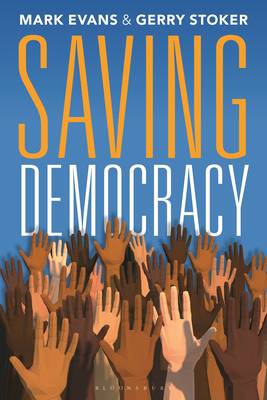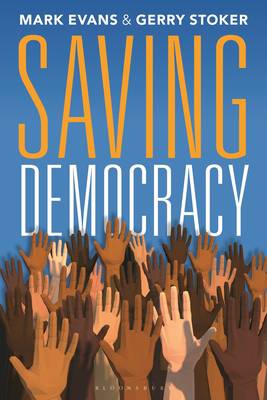
Bedankt voor het vertrouwen het afgelopen jaar! Om jou te bedanken bieden we GRATIS verzending (in België) aan op alles gedurende de hele maand januari.
- Afhalen na 1 uur in een winkel met voorraad
- In januari gratis thuislevering in België
- Ruim aanbod met 7 miljoen producten
Bedankt voor het vertrouwen het afgelopen jaar! Om jou te bedanken bieden we GRATIS verzending (in België) aan op alles gedurende de hele maand januari.
- Afhalen na 1 uur in een winkel met voorraad
- In januari gratis thuislevering in België
- Ruim aanbod met 7 miljoen producten
Zoeken
Omschrijving
Democracy is in crisis. Is there still time to save it?
Democracies face external threat from aggressive authoritarian states. Internally, citizens have grown increasingly distrustful of politicians and more cynical about national and global governance institutions. The time is ripe for democracy to renew itself. This text offers a state-of-the art overview of democratic innovations today, moving beyond cries of the 'death' or 'end' of democracy to instead offer a range of practical solutions for how to save it and restore faith in democratic practice.
'Old' democratic power, represented by existing structures, is being challenged. 'New' power involves collaboration and rapid feedback loops, as well as increased citizen participation. The future of democracy, the authors demonstrate, will be about findings ways of melding 'old' and 'new' power practices. Offering a broad and accessible survey of what different forms of democracy and democratic innovations look like today, and how they can develop in future, Saving Democracy shows us the potential for transformation across the entire democratic process. Avoiding a reductive focus on simply getting citizens more involved in decision-making, this book uniquely argues for the importance of refining and monitoring how democratic decisions are made and followed through.
Democracies face external threat from aggressive authoritarian states. Internally, citizens have grown increasingly distrustful of politicians and more cynical about national and global governance institutions. The time is ripe for democracy to renew itself. This text offers a state-of-the art overview of democratic innovations today, moving beyond cries of the 'death' or 'end' of democracy to instead offer a range of practical solutions for how to save it and restore faith in democratic practice.
'Old' democratic power, represented by existing structures, is being challenged. 'New' power involves collaboration and rapid feedback loops, as well as increased citizen participation. The future of democracy, the authors demonstrate, will be about findings ways of melding 'old' and 'new' power practices. Offering a broad and accessible survey of what different forms of democracy and democratic innovations look like today, and how they can develop in future, Saving Democracy shows us the potential for transformation across the entire democratic process. Avoiding a reductive focus on simply getting citizens more involved in decision-making, this book uniquely argues for the importance of refining and monitoring how democratic decisions are made and followed through.
Specificaties
Betrokkenen
- Auteur(s):
- Uitgeverij:
Inhoud
- Aantal bladzijden:
- 256
- Taal:
- Engels
Eigenschappen
- Productcode (EAN):
- 9781350328259
- Verschijningsdatum:
- 21/04/2022
- Uitvoering:
- Hardcover
- Formaat:
- Genaaid
- Afmetingen:
- 156 mm x 234 mm
- Gewicht:
- 535 g

Alleen bij Standaard Boekhandel
+ 322 punten op je klantenkaart van Standaard Boekhandel
Beoordelingen
We publiceren alleen reviews die voldoen aan de voorwaarden voor reviews. Bekijk onze voorwaarden voor reviews.









